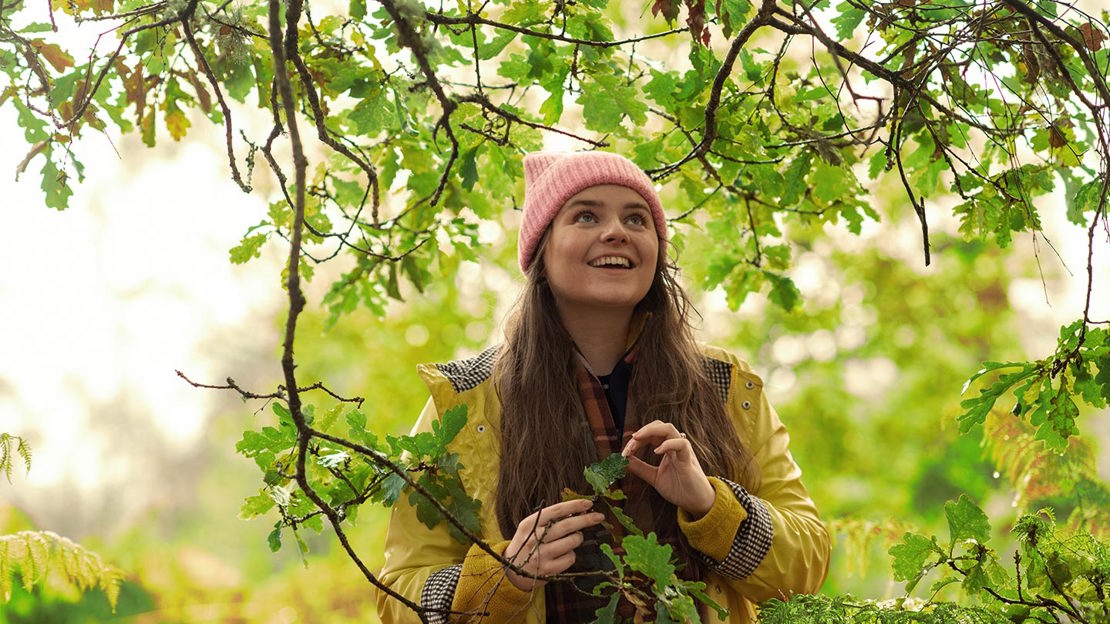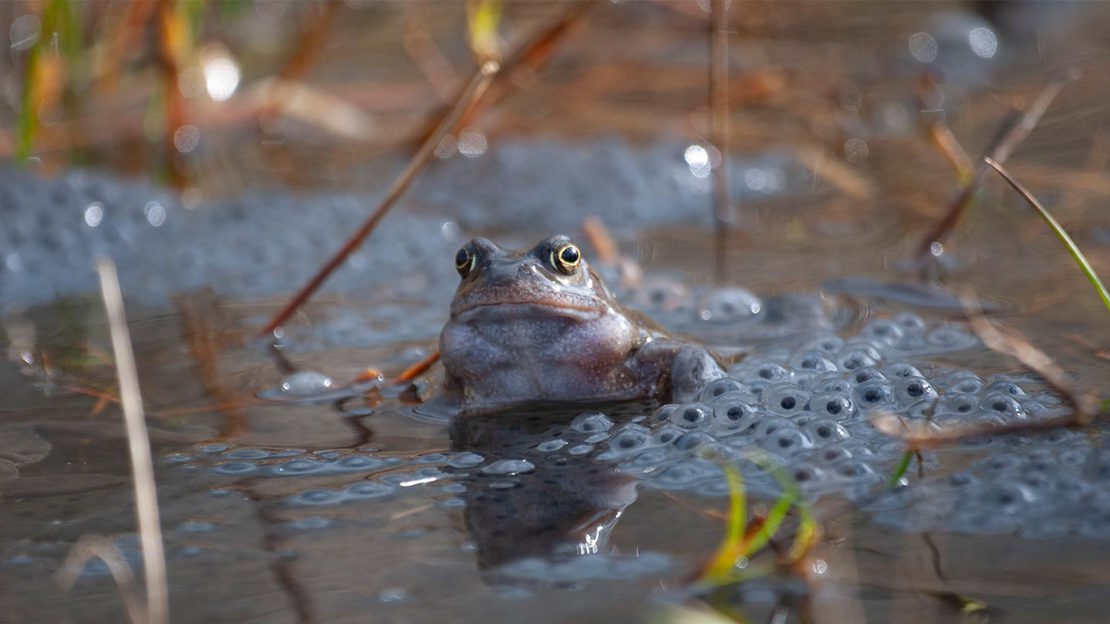Spot spring’s vital signs and help the Woodland Trust record the impact of climate change on nature

Senior PR officer
The Woodland Trust is urging people to get outside and spot vital signs of spring to help monitor potentially “disastrous” effects of climate change on nature, before its campaign ends on Easter Monday.
The UK’s largest conservation charity is collecting records of public sightings of frogspawn and blackthorn blossom, as well as the singing of the song thrush, to track the health of the planet.
Thousands of people have already taken part in the Trust’s citizen science campaign, and as the spring weather arrives, more and more aspiring nature detectives are heading out into their gardens and local parks.

Seasonal weather changes can have a serious knock-on effect on nature and wildlife, impacting life cycles and food chains.
“Recording any of these three vital signs is a lovely way to spend time in nature this spring, while also giving our research team valuable insights.” explained Dr Kate Lewthwaite, citizen science manager at the Woodland Trust.
“Spring now arrives nine days earlier than in the early 20th century on average, and this can have a disastrous effect on wildlife. Recording frogspawn, blackthorn blossom and song thrush singing gives us a clearer indication of what’s happening out there.
“Frogs only reproduce once a year, so if the weather warms too early, they can be tricked into mating too soon and the frogspawn may not survive a sudden cold snap. Blackthorn blossom is a vital, early nectar source for insects so it’s great to see it spreading across the UK.”
Early results from the project have shown frogspawn has followed its classic pattern of being first seen in the southwest of England, then sweeping up through Wales, followed by northern England and Scotland, and finally down into the east of England. Scientists at the Trust say this is good news for nature since fewer frogs have been caught out by unseasonal weather.

The Woodland Trust’s dedicated Nature’s Calendar volunteers collect this kind of information every year and the more people who get involved, the better the data.
“There’s the chance to learn more about nature, get active, spend time in the woods and fresh air and experience all the wellbeing benefits that go with that.” Dr Lewthwaite added.
“But this is a serious business too. Climate change is not just icebergs and polar bears. It’s happening in your garden and outside your window. It’s impacting the birds, animals and flowers we all know and love.
“Citizen science projects like this one are an essential tool in the fight against climate change. Everyone who records any of our three vital signs of spring is making a difference and helping us gather valuable evidence to show what is happening to our planet.
“The campaign has really captured people’s imaginations and we’ve been bowled over by the response. The campaign ends on Monday 21 April so there’s still plenty of time to get involved. Just pop outside and hunt for blackthorn blooms, scour your local ponds and streams for frogspawn, and keep your ears open for the sound of a song thrush singing.”
Visit the Vital Signs campaign page to log your spring sightings before the end of Monday 21 April.
Notes to editors
For more information, please contact Owen Phillips at owenphillips@woodlandtrust.org.uk or on 07958 066766. You can also contact the Woodland Trust PR team at media@woodlandtrust.org.uk.
About the Woodland Trust
The Woodland Trust is the largest woodland conservation charity in the UK with more than 500,000 supporters. With a vision of a world where woods and trees thrive for people and nature, today the Trust owns and cares for more than 1,000 woodland sites, covering around 33,000 hectares.
The Woodland Trust has three key aims:
- protecting the UK's rare, unique and irreplaceable ancient woodland
- restoring damaged ancient woodland, nurturing precious pieces of our natural heritage back to life
- establishing new native trees and woods to create healthy, resilient landscapes for people and wildlife.
Access to all Woodland Trust woods is free so everyone can experience the physical and mental benefits of trees.
Nature’s Calendar
The Woodland Trust’s citizen science project Nature's Calendar uses data collected by members of the public to track key seasonal timings.
What impact has recent weather had on wildlife? Does climate change affect timings in nature? Anyone can take part in Nature’s Calendar.
You can help the Woodland Trust record the effects of weather and climate change on wildlife near you and help scientists discover answers to these questions.
Nature's Calendar is supported by players of People's Postcode Lottery.
GDPR
The Woodland Trust uses Onclusive’s database PRGloo to obtain work contact details for journalists and editors that we feel may be interested in a particular press release or story. We do not hold any personal data for journalists or editors on Woodland Trust systems or computers.
If you do not wish to be contacted in the future by the Woodland Trust, please email media@woodlandtrust.org.uk and let us know you wish to be taken off any or all lists.

